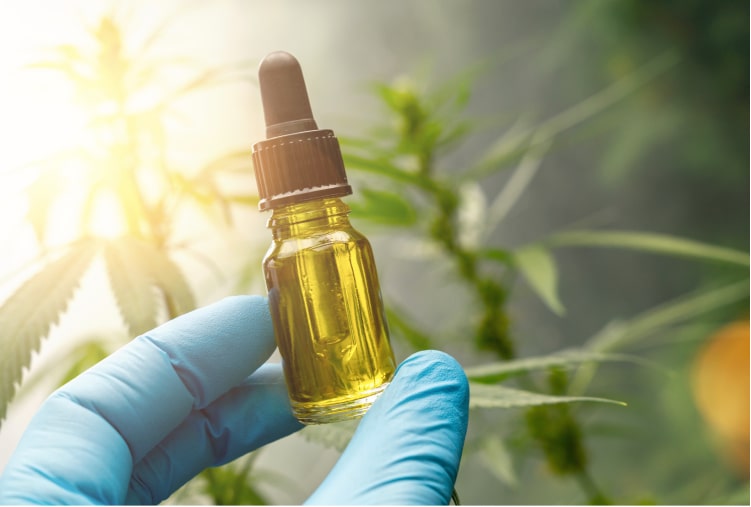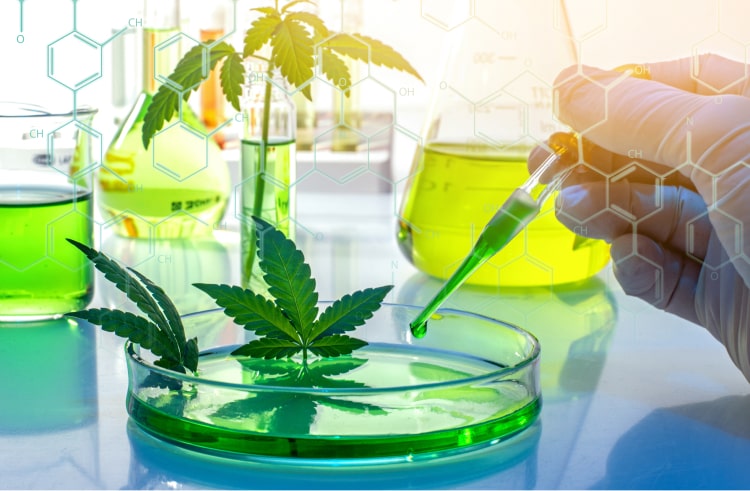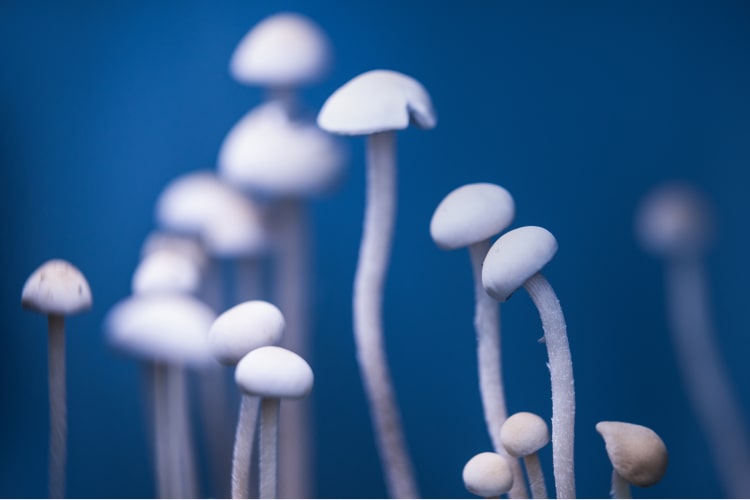Unraveling Nature’s Treasures

Natural Product Synthesis in the Hemp Industry
Unlocks Boundless Potential for Cannabinoids
Introduction
The hemp industry has experienced a significant boom in recent years due to the growing interest in cannabinoids and their potential health and therapeutic benefits. Among the most well-known cannabinoids, cannabichromene (CBC), cannabidiol (CBD), cannabigerol (CBG), and cannabinol (CBN) have garnered considerable attention. However, the hemp plant also contains an array of lesser-known cannabinoid homologs considered minor or rare, such as cannabichromevarin (CBCV), cannabidibutol (CBDB), cannabigerohexol (CBGH), and cannabiphorol (CBP). These compounds are typically found in trace quantities in hemp and their potential benefits remain largely unexplored.
The Challenge of Extracting Rare Cannabinoid Homologs
While hemp contains a rich assortment of cannabinoids, extracting and purifying these rare homologs is a complex and challenging task. In their natural form, these compounds exist in minuscule amounts, making it difficult to obtain significant quantities for comprehensive research. Botanical extraction yields complex mixtures of chemicals with varying safety profiles, including significant unknown substances, hindering accurate analysis and posing potential risks for consumers.
The Promise of Natural Product Synthesis
Natural product synthesis can provide an innovative and sustainable solution to overcome the limitations of botanical extraction. By synthesizing these rare cannabinoids in the laboratory, scientists can access these compounds abundantly and in purified, bioidentical form, enabling in-depth research into their pharmacological properties, safety profiles, and potential applications. Synthetic, bioidentical molecules offer a controlled and standardized way to explore the dietary, cosmetic, and pharmaceutical potential of these cannabinoids.


Advantages of Synthetic Bioidentical Molecules
- Purity and Safety: Synthetic cannabinoids are produced in a controlled environment, ensuring a high level of purity and minimizing impurities that could pose unknown health risks. Such consistency enhances safety and allows for accurate dosage control.
- Precise Research: With synthetically produced homologs, researchers can explore each cannabinoid’s distinct receptor binding, pharmacology, and toxicity, thereby shedding light on their unique benefits and potential applications. This knowledge lays the groundwork for the development of dietary supplements, skincare products, and pharmaceuticals with targeted benefits.
- Development of Novel Solutions: Many of these homologs have demonstrated promise in developing antiviral drugs and surface disinfectants, providing hope for addressing challenging medical conditions such as MRSA infections. Moreover, their potential in treating skincare issues like acne highlights their versatility and significance in the cosmetic industry.
Embracing Synthetic Cannabinoids: Dispelling Misconceptions
The term “synthetic” often raises concerns among consumers, who might associate it with artificial and potentially harmful substances. However, it is essential to distinguish between synthetic access to natural products and the synthesis of chemicals not otherwise found in nature. Phytocannabinoids produced synthetically are, by definition, identical to what is produced in a plant, making them just as safe and beneficial for human consumption, if not more so due to their higher purity levels. On the other hand, cannabimimetic agents, colloquially referred to as ‘Bath Salts’ or ‘Spice’, are not found in nature, have known toxicities, and are explicitly banned by regulatory agencies.
Regulatory Acceptance and Safety
Synthetic cannabinoids undergo rigorous testing and evaluation to meet regulatory standards, ensuring their safety for human use. Precision manufacturing methods enable researchers and manufacturers to adhere to quality control measures and maintain consistency in product formulations.
Conclusion
Natural product synthesis opens a new realm of possibilities in the hemp industry, allowing scientists to explore the full potential of rare cannabinoid homologs. The availability of purified and standardized compounds facilitates in-depth research, leading to discoveries that were previously inaccessible through traditional botanical extraction. Embracing synthetic, bioidentical molecules offers a pathway to safer and more effective dietary supplements, cosmetics, and pharmaceuticals. As consumers, researchers, and industry professionals, it is time to embrace the immense potential of natural product chemistry and its contribution to a safer and brighter future in the hemp industry.

